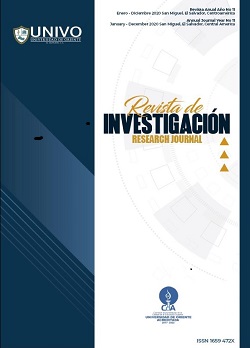Family Farming: perspectives of rural development in the municipality of San Miguel
DOI:
https://doi.org/10.5377/revunivo.v0i11.11332Keywords:
Family farming, food and nutritional insecurity, rural development, living conditionsAbstract
The main purpose of this study was to analyze the family farming practices and the living conditions in the communities of La Canoa, San Jacinto, El Volcán and El Brazo, from the municipality of San Miguel, considering the importance that the farming activities for the community development has. An exploratory approach of this unknown topic was used, so the results are an approximated vision of this phenomenon. Besides, an explanatory design was applied to understand how the family farming practices improve the family living conditions. Results showed a farming system in the rural areas based in basic grains, mainly corn grains, which limits the production diversity. A low index of production support was defined, as well as a low index in farming production initiatives. The Latin American and Caribbean Food Security Scale (ELCSA) roughly determined that 8.7% of the families are ensured food security, 34.6% are in light food insecurity, 22.8 are in mild food insecurity, and 33.9% are in severe food insecurity. Rural development is associated to the livelihood profiles. Therefore, a weak farming system characterized by a low index of farming initiatives
lead out to food insecurity conditions, damaging the living conditions of the families from the rural area of the municipality of San Miguel.
489

